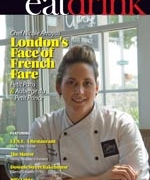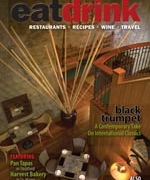Asian-Style Slow Food: A Lesson in Chopsticks
Chopsticks are the gentle cutlery. Choosing them for a meal means relinquishing the more violent actions of stabbing with fork tines and slicing with knife blades. Like surgery, using chopsticks involves delicate procedures and pinpoint accuracy to placidly move morsels of food to the mouth. Western utensils seem to be designed for an aggressive contact sport, but chopsticks allow for more of a tai chi routine. But, of course, that’s only for those who know how to use them well enough to not look ham-fisted. Read more




